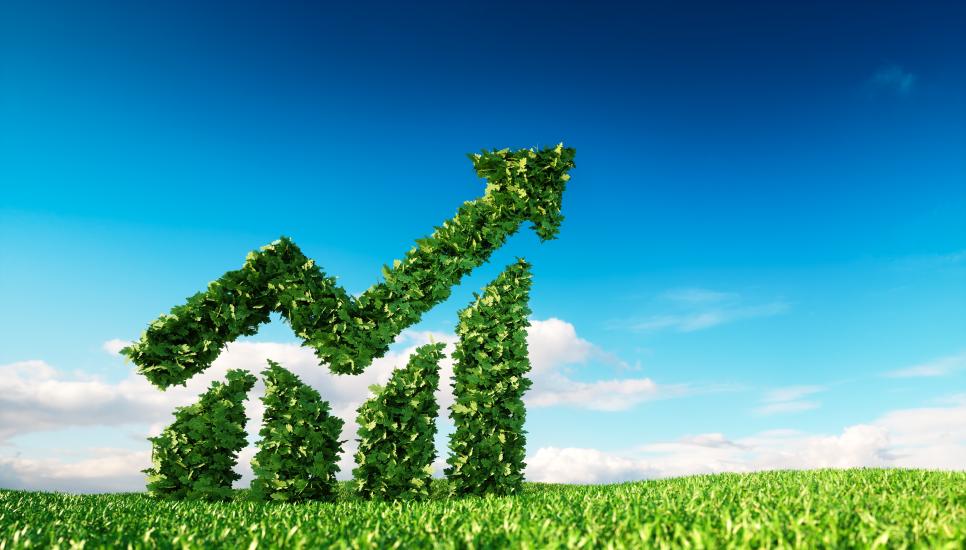How family investors are putting their wealth to work against global challenges

Family entrepreneurs attending the leading 23rd European Family Office Forum are putting their money where COP26 politicians’ mouths are by sustainably investing in transformational ventures and gaining healthy returns.
The essential and influential forum will be held by Campden Wealth on 3-4 November. The exclusive gathering returns to its in-person format in London for its 23rd edition.
The theme of the forum is “Reshaping family wealth with a renewed purpose, outlook and future” and family speakers will share their first-hand experiences and knowledge of sustainable and impact investing for family peers to take advantage in their ventures.

A significant 70% of the families, foundations and individuals surveyed for the new Investing for Global Impact: A Power for Good 2021 report told Campden Research the transition to net zero has become “the greatest commercial opportunity of our age” as it represents a chance to benefit from the companies and innovations addressing climate change.
Melissa Sesana Grajales (pictured right) is a next-gen member of her Colombian family’s diversified business, Inversiones Brembo. She is also the co-founder and director of international relations at the privately held impact investing firm Asiri, headquartered in Bogota.
Sesana Grajales said issues surrounding impact and sustainability have long been central to her family’s mission.
“Generosity and empathy are core values that were instilled in us by my grandfather,” she said.
“Like many families, I think as a family we’ve had these values present while making investments before ‘impact investing’ was a widely known practice.
“When we decided to include impact firmly in our investment strategy, we first laid out our family values. Following this we excluded sectors/activities that didn’t align with our values—this includes weapons, gambling, tobacco and alcohol, among others.”
Sesana Grajales said the next step was identifying the issues and impact themes that she and her family members wanted their impact portfolio to focus on.

“For this we relied heavily on the United Nations’ 17 Sustainable Development Goals. Reduced inequalities, poverty alleviation, quality education, affordable clean energy and clean water and sanitation came up as themes where we would like to strive to align.”
Issues around impact and sustainability were of “vital” importance to Tor McLaren (pictured left), a founder of intelligence business Tiller Global Counsel and former partner of Nash Capital Group. The senior adviser at London firm Avonhurst said his family held long-term UK and Australian farming enterprises. Family members were “very concerned” that misinformation surrounding agricultural carbon dioxide emissions could affect those assets.
“Elsewhere we take a long term view and see opportunities to profit from what used to be called Greentech,” McLaren said.
“We have investments in hydrogen and lithium.”

Brynne Kennedy (pictured right), a New York and California-based investor, entrepreneur and former politician, said she and her team invest venture capital across the United States and Northern Europe in transformational companies. They look for ventures which aim to solve society's most pressing problems across human wellness, food and agtech, climate change and smart cities in more sustainable ways.
“We believe that the most effective way to solve these collective challenges is by bringing together great entrepreneurs, professional investors and private capital to build the companies of the future,” Kennedy said.
“By doing so, we create differentiated, high-growth companies in huge markets and generate strong returns to our LPs.”
However, Paul Reynolds, chief executive of Thamesis, a UK single family office, said his family thought reflecting issues around impact and sustainability in their investment strategy was more complex.
“There is an incredible amount of disruption in the transport, energy and food sectors,” Reynolds said.
He quoted RethinkX’s report on rethinking climate change, which argued conventional thinking had wasted time, attention and resources on ‘Band-Aid’ approaches to solving climate change that treated symptoms rather than the underlying problem.
“Instead, a simpler and more effective approach is to focus on a handful of key technologies that will transform the entire foundation of our economy,” RethinkX said.
Tackling the world’s greatest challenges
Nearly one-third (30%) of global wealth holders told Campden Research they were targeting investments that directly supported a transition to a low carbon economy. Almost one-quarter (24%) sought to avoid any companies they assessed as major contributors to the issue of climate breakdown.

Sesana Grajales said the climate crisis was undoubtedly a huge global challenge. A transfer to clean, affordable, renewable energy was crucial and would have dividends.
“I think a lot of solutions to the climate crisis would have notable positive effects on other important global challenges. For example: access to affordable, safe, renewable energy has a knock-off effect on access education, improved health and generally in reducing inequality.
“I think analysing these challenges as interconnected fields would be beneficial to coming up with solutions that create the most positive impact.”
McLaren said environmental, energy, geopolitical and health issues were among the issues confronting the world. He was also concerned about natural and weaponised threats.

An era of deeply polarised politics in many countries was the biggest challenge, Kennedy said. The public sector could not be relied upon to solve the big problems the global community faced.
“This is most poignant in the US, but true across the world, and something I saw first-hand when I ran for United States Congress last year,” she said.
“It was that experience that led me back to venture capital investing and entrepreneurship. It is up to those of us who know how to invest and build companies to solve society's most pressing problems.”

Reynolds said the next decade will see the biggest peacetime change in our lifetimes and possibly ever.
“Increasing digitisation will change every aspect of our lives. This could be tremendously positive, but equally could increase global inequalities. This comes at a time when we face tremendous environmental challenges—we will make the right decisions, and will we make them quick enough?”
The 23rd European Family Office Forum will be held by Campden Wealth in-person in London on 3-4 November, 2021. To inquire about attending, email Liam Smith via liamsmith@campdenwealth.com.







